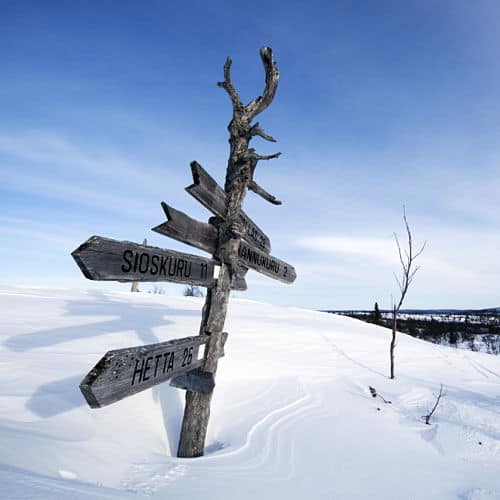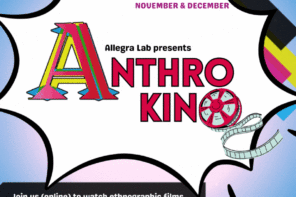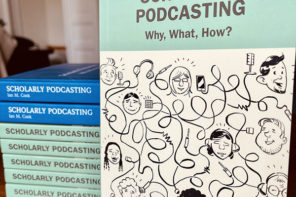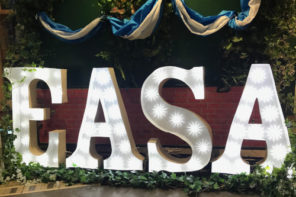To conclude this Allegra week, it is time for yet another events’ post! These are always a thrill to us: they allow us to get in touch with the most exciting ongoing scholarly work – and also offer glimpses into where we can expect debates to move in the future.
This time, by no premeditation, this list has a distinct Nordic emphasis. Or more precisely still, an emphasis on Finland. Honestly, this was only due to the events that kept on coming our way – as we know from Knots 1 & 2 as well as the Conference on ‘Landscapes’, there is ample interesting work being done in the far north! Simultaneously this emphasis has more poignant undertones.
Over the past year we have shared occasional glimpses into the bizarre-looking (concretely) university occupation(s) that have been going on particularly at the University of Helsinki. This is no coincidence as Allegra’s editor Miia Halme-Tuomisaari has been rather strongly involved in the said action.
One cannot emphasise enough what the past year has brought with it: cuts in the range of 180 million euros are forced on Finnish universities by end of 2017, the bulk of those on the University of Helsinki which recently announced that it will be firing up to 15% of its entire staff by the end of the same year.
All of these cuts arrive against direct electoral promises a year ago. They are also against the warnings of experts in Finland and internationally. Why a small country like Finland with national resources (besides forests) that has been a steady leader in international Pisa-studies – not that we should get hyped about quantified measuring of ‘excellence’ – would want to kill its research and education?
There is an infinite number of people trying to figure this out, yet with little understanding. When put in a global perspective, we are in Finland witnessing the very same patterns that seem to be prevailing the world over. Just this week we learned that powerful attempts are made at the US to introduce amendments to NSF funding so that only ventures supporting ‘national interest’ would receive funding.
The future of genuine, independent critical inquiry seems bleaker by each passing month.
Yet, this is not the time to dwell on these pessimistic sentiments! Rather it is the time to continue challenging these ‘dark forces’ by showcasing all the wacky, wonderful and creative work that is continually being done. Thus why not join in on the fun by submitting a paper to one of these events – and then reporting back to us with your experiences!
And remember: Do get in touch with Andrea at andreak@allegralaboratory.net or audef@allegralaboratory.net if you want your event to feature in our March list or if you feel like writing a short report!

27-28 May 2016, Oriental Institute, The Czech Academy of Sciences, Prague
The immigration emergency, the Cologne attacks and other reports on the Arab populations in Europe continue to generate commentaries across the continent. The concentration of generally unwelcoming attitudes towards Middle Eastern newcomers in Central and Eastern Europe is seen by some as the evidence of ‘a split of mentalities’ between the ‘old Europe’ and its ex-communist states. Publicly expressed critical stances regarding populations fleeing wars in Syria, Iraq and Afghanistan by some Central and Eastern European officials was commonly interpreted as ‘the fear of the unknown Other’. In the political, media and even academic discourse, these reactions were attributed to the Central and Eastern European ignorance of Arab cultures, and difficulties the region has in coming to grips with its own multi-ethnic heritage. As a consequence, some Central and Eastern European countries were labeled parochial, xenophobic and not fully ‘European’. Whereas, these countries themselves claimed to act as barriers of Europe, protecting its borders and values.
These dichotomies are understood as an expression of contrasting experiences of apprehending the Other in different parts of Europe. There is a need, however, to complexify these all-too-easy dichotomies by looking into how concretely knowledge on the Middle East is produced in different countries. While speaking about refugees, two kinds of discourse could be identified across the continent: one that employs the language of human rights, and another that rests on the assumption of cultural specificity, and the related ‘cultural incompatibility’ between European and Middle Eastern countries. In this particular case, it is relevant to ask how the ‘Arab culture’ is defined and by whom. How, by contrast, ‘the culture of the majority’ is delineated and argued for? On what concrete grounds these two discourses on Arab newcomers to Europe intermingle and collide? To provide an answer to these questions, one needs to look into the ways knowledge on the Middle East is produced and disseminated in contemporary Europe. [more]

4-9 May 2016, Dubrovnik, Croatia
Early social and cultural anthropologists and ethnologists regarded their disciplines as sciences that systematically gathered information about diverse cultures and societies and formally analysed it comparatively and structurally. Moreover, various social-cultural anthropologists, particularly some in colonial and settler contexts, insisted that their work was scientific which, with hindsight, it seems they did to counter colonial administrators’ critiques of their work for threatening the colonial enterprise. Recently, particularly since social-cultural anthropology’s interpretive turn, governments at various levels have lumped these disciplines together with various others in the humanities, and rubbished them as useless for ‘societal betterment’ – ostensibly because they are not scientifically objective, not properly evidence based, not statistical in their analyses. The critique has generated various public responses from the disciplines’ practitioners. The panel seeks two kinds of papers relating to the critique. The first is papers focused on the character of anthropology and ethnology as presently practised and how one might argue that their methods reveal them to be as much scientific as those of the so-called hard sciences, albeit differently so. The second is papers concerned with the kinds of arguments mounted in response to current threats to the disciplines and the humanities in general, and the extent to which those manage to reflect contemporary arguments that globally anthropology and ethnology are characterised by their own multiplicity and heterogeneity. Put differently: can responses to critiques that anthropology fails as a science succeed if they reflect an argument that there are many socially-positioned anthropologies drawing on multiple epistemologies? [more]
Deadline for submission of papers (extended): 29 February 2016

10-12 December 2016, Jawaharlal Nehru University, Delhi, India
The indeterminacy in law could be read both as a problem of truth and also as one that plagues disciplines. The question of evidence has been central to the formation of disciplines and the claims that they make upon knowledge. For initiatives such as LASSnet, the imperative of thinking with evidence — in these times of virtual virality, forensic imaginaries and ephemeral archives — serves as a fertile ground on which we can stage discussions of the perils, pleasures, meanings and methods of inter-disciplinarity. While disciplines are defined partially by the evidentiary protocols that they follow, the very nature of inter-disciplinary enquiry calls into crisis the idea of a single protocol. The methodological concerns with the seeking and making of certainty and truth implicate a whole range of disciplines: anthropology, art, history, law, religion, philosophy, politics, economics, literature, theatre, and science, to name just a few. The stakes in thinking with evidence are very high since doing so raises the core epistemological claims, regarding not just of what, but also how we know. This is rendered all the more difficult because the very grounds of evidence are themselves shifting terrain, subject not only to developments in science and technology but also to forms of historical consciousness and social knowledge. [more]
Deadline for submission of abstracts: 1 March 2016

12-13 May 2016, University of Turku, Finland
In recent decades many of the foundational classificatory structures of law have been challenged by entities that are familiar to law but who appear in new functions. While robots are revolutionising trade and warfare, animals, embryos and corporations are knocking the doors of personhood with their multifarious rights reminiscent to those of natural persons. At the other end of the spectrum, many marginal people are transformed into mere objects. When the European Union makes an administrative decision to relocate 120,000 refugees or when the United States consider all military-aged males as legitimate targets in drone warfare, little of humanity remains. Despite of these drastic changes, many of the conceptual tools used to analyse these new phenomena are vestiges of past centuries, such as the Roman law structure between persona and res—persons and things.
It is in this changed world the Persons/Things workshop seeks to explore the present and the past of persona/res distinction. Are challenges of the present world unheard of are they simple re-enactments of the past debates held over slaves and women? Or could there be something genuinely new in the seeming porosity of the border between things and persons? [more]
Deadline for submission of proposals (extended): 7 March 2016

3-5 October 2016, University of Helsinki, Finland
The Conference Law Between Global and Colonial: Techniques of Empire proposes to discuss the legal languages and techniques through which colonial powers ruled non-European territories and populations throughout the modern age. The aim of the Conference is to examine in detail the juridical practices and discourses of colonial powers when they exercised their supremacy over colonial subjects and disciplined them. Given the complexity and variety of these legal strategies and without neglecting the classical the study of “law of nature and nations”, we intend to move beyond it in order to explore a hybrid normative body consisting of ad-hoc colonial laws, commercial laws and domestic laws adapted to colonial contexts. What came to be called the “empire of free trade”, for instance, operated largely through a commercial law (sometimes, though not always called “lex mercatoria”) that possessed features of both international and domestic law.
Although the focus of the conference is historical, the interest feeding it lies in the present. With the great numbers of people moving about in Europe, Asia and Africa as migrants, guest workers, refugees and displaced persons, territorial states have often used methods and techniques that resemble those with which colonial populations once were treated. With research showing a sharp rise in world inequality, the conference poses the question whether legislative techniques and institutions inherited from the imperial past, once again see the light of day in the present. [more]
Deadline for submission of abstracts (extended): 7 March 2016
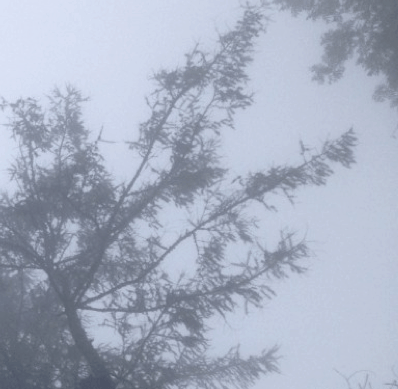
20-22 September 2016, University of Turku, Finland
Uncanny experiences, the search for the inexplicable, or the belief in supernatural beings or universal energies trigger disputes about at least ontology, rationality, sanity, and the limits of the mind. Modern Western society is for the most part characterized by principles such as rationality and efficiency. Quoting Max Weber, these ideas comprise the leading forces of modern society and science. However, what several scholars in religious studies currently call post-secularism has given rise to new spiritual tendencies and movements in society. These post-secular tendencies have brought about something that several authors term ‘re-enchantment’: new spirituality and uncanny experiences are perhaps more than ever a part of Western everyday life. Some scholars define the situation as a crisis of rationality, whereas others again accentuate the recurrent nature of historical phenomena, pointing to recurring waves of thought stretching from the Ancient past to the present. Still others claim that in practice the rational and the uncanny are intertwined in a new mode. In historical and ethnographic explorations the uncanny can be understood, not as a boundary between rational and its “outside”, but as an element of connection and compromise between them practiced by ordinary people and practices of institutions, such as modern medicine and science.
In this conference we argue that the boundary between normal and pathological is socially and culturally made, and several social institutions such as science, medicine and religion play remarkable roles in this making. We ask if the very notion of the human mind, as it is defined in the current scientific discussions, is too narrow to capture phenomena and experiences which are important to people. [more]
Deadline for submission of abstracts: 15 March 2016
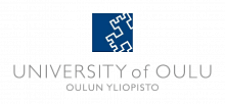
22-24 September 2016, University of Helsinki, Finland
It is often suggested that historiography deals with change in time. If nothing ever changed, it would hardly make sense to do historical research. The nature of conceptual change has been an object of acute interest in recent years in the history and philosophy of science, cognitive science, Begriffsgeschichte, the history of ideas, legal history and other fields. Although a seemingly simple notion, the term ‘conceptual change’ hides a complex set of questions and Problems.
We invite contributions on the topic of Conceptual Change in History from both junior and senior scholars and from various fields. The papers may deal with the semantic problems of conceptual change: How should change, stability, replacement and emergence of concepts in history be understood? What kind of theory of concepts does historiography require? Contributions may also address the question of the modelling of conceptual change. What are the mechanisms of conceptual change and how can they be presented? What is the relationship between concepts and normative orders and such as law and legal culture? In addition, papers may describe specific cases of conceptual change in history, which illuminate some philosophical, legal and theoretical aspects of conceptual Change. [more]
Deadline for submission of papers: 31 March 2016
Featured image by Visit Finland (flickr, CC BY-NC 2.0)

